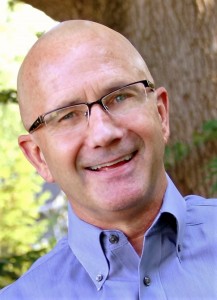 Guest post by Mark Reifsteck [left], who joined our Society in 2014. Follow him on Twitter at @MarkWReifsteck. To become a member, individually or organizationally, see our Join Us page.
Guest post by Mark Reifsteck [left], who joined our Society in 2014. Follow him on Twitter at @MarkWReifsteck. To become a member, individually or organizationally, see our Join Us page.
It started innocently enough: I made an off-handed comment on the SPM member listserv about tone-deaf (my term) administration of a healthcare institution, which prompted a friendly exchange that resulted in a challenge to me to write something about how healthcare administrators can promote participatory medicine in their organizations.
Which got me thinking.
I have been in senior executive roles in hospitals and health systems for more than 30 years, I am not clinically trained; rather came up through a traditional healthcare administration program that trained primarily, though not exclusively, non-clinical folks like me.
When I first started my career, I was a vocal defender of the status quo point of view which included the belief that hospitals existed to improve the health of the community, the patient was at the center of everything and when mistakes happened it was normal and besides other hospitals were just as bad or worse.
About 15 years ago I slowly began to realize just how unsafe, inconvenient, expensive and provider centric hospitals were and have evolved into an equally vocal advocate of a participatory approach to medical care.
And I realized, the need is not just in the clinical visit: we need a participatory approach throughout the entire system – from top to bottom. Including administrators!
So now back to how hospital and health system executives can promote participatory medicine in their organizations. I think it is a wonderful thing to see many more people entering the ranks of senior executives in healthcare organizations who have a clinical background.
I don’t have hard data, but anecdotally I see many more physicians, nurses and others getting advanced business or public health degrees and becoming CEO’s, COO’s, or occupying other senior executive roles in health systems. My belief is senior leaders who have come up the ranks providing hands on care to patients helps improve the odds that they have empathy for and support of engaging patients in the design and delivery of care.
An organization that has senior leaders with clinical backgrounds by itself doesn’t guarantee it promotes participatory medicine principles but it can sure help. For an organization to truly embrace the principles of participatory medicine the active involvement of patients, professionals and other caregivers must be woven into the culture of the organization.
I have heard culture defined as “how we do things around here” and think that is largely right. Actively involving patients, professionals and caregivers has to be the way things get done in the organization…from new facility design, program development, education materials, etc. It requires a conscious, intentional effort to bring these constituents in the care enterprise together to design the care experience in all facets.
A very effective method of involving patients in a participatory model I have direct experience with is to have patients (or family members of patients) who have been injured while in the care of one of my organizations address senior managers and Boards of Directors about their experience. Story telling doesn’t get any more powerful than that.
Today most healthcare organizations I have experience with have not embraced a culture of participatory medicine. However, if senior leaders of healthcare organizations led more frequently by those with patient care backgrounds, model participatory medicine principles in their daily administrative practice they can transform the culture of their organizations to give better care.






Recent Comments